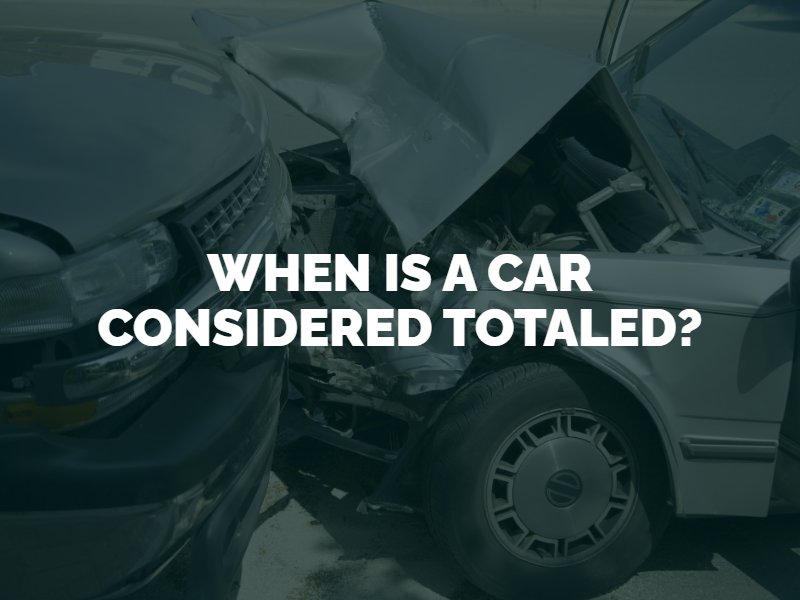Even a minor fender-bender is an alarming and upsetting experience, but a serious accident with major damage to a vehicle is terrifying, especially when it causes injuries. During the immediate aftermath of a serious accident, taking care of your health and the safety and health of any loved ones who were with you in the accident takes priority, but when an accident victim’s thoughts turn toward their vehicle, one of the first questions they ask is often, “Was my car totaled?”
While property damage concerns take a back seat to injuries, most Washington residents rely on their vehicles for transportation to work and school. A totaled vehicle can quickly add to the total financial hardship and other problems associated with the accident. But when is a car repairable and when is it considered totaled after an accident?

To decide if a vehicle is totaled after an accident, the insurer compares the estimated cost of repairs to the fair market value of the car before the accident. Washington defines, “fair market value” as the amount a knowledgeable buyer would reasonably pay for a vehicle from a well-informed seller who isn’t under pressure to sell.” This amount is the car’s actual cash value. If the cost of repairing the damaged vehicle and its scrap value is equal to or greater than the assessed fair market value of the car before the accident, the insurer declares the vehicle totaled—or a total loss that’s not worth repairing.
An insurance company determines a vehicle’s fair market value by doing the following:
Owners of totaled vehicles can request copies of the insurance company’s total loss valuation report to view the information the company used to make the determination.
If you were at fault or mostly at fault for the accident, your insurer will either pay you a settlement for the assessed fair market value of the vehicle before the accident or replace the vehicle with one of similar value. If someone else was at fault for the accident, you must first document evidence of the other driver’s liability. Often the police report is not enough, since law enforcement officers typically reserve their resources for criminal investigations rather than traffic ones.
A Seattle car accident attorney helps build a compelling case for an at-fault party’s liability by investigating all aspects of the accident and carefully calculating damages, including property damage— as well as medical expenses and lost wages. The insurance company of the party at fault for the accident will negotiate with your attorney to agree on an out-of-court settlement in the vast majority of car accident claims so it’s unlikely you’ll need to go to court.
Some collision policies allow insurance holders to have an evaluation of the assessed value of a policyholder’s totaled vehicle even if the other party was at fault. In these cases, the accident victim’s insurance will pay the settlement and then seek reimbursement from the insurance policy of the party at fault. If you were involved in a car accident where your car is totaled, contact the Seattle personal injury lawyers of Fang Law Firm.